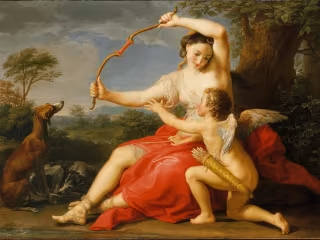Bellona: Goddess of War
0
Ghostwriter
Blog Writer
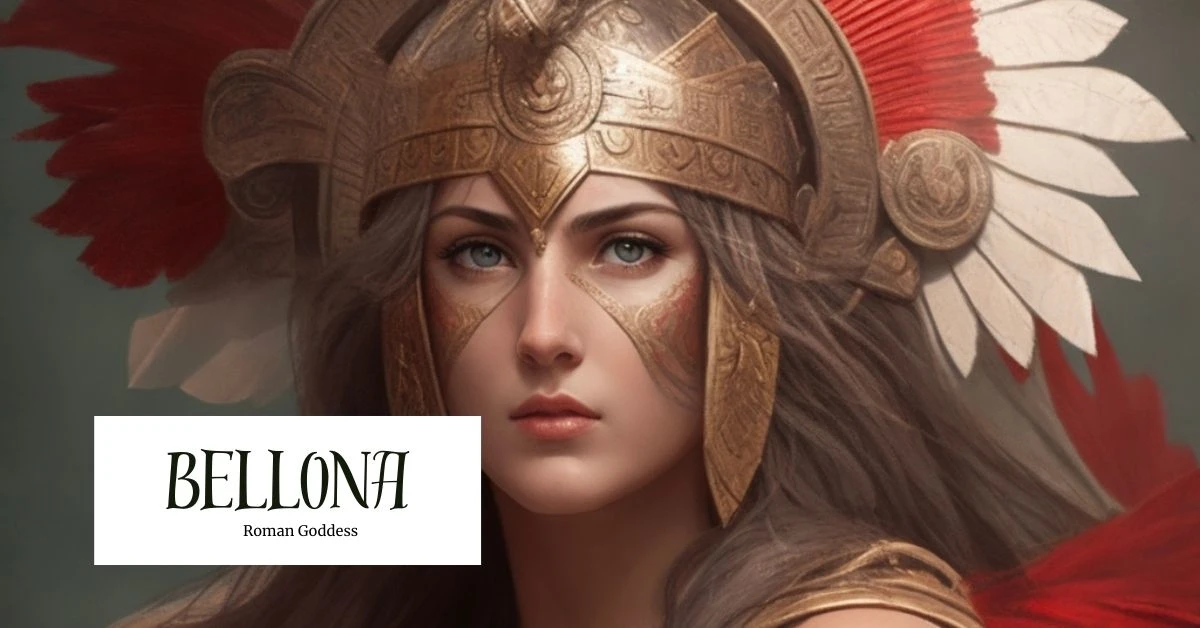
The Goddess of War, Bellona, holds a commanding and unyielding presence in Roman mythology, embodying the essence of war and conflict. With a rich and storied history steeped in the martial traditions of ancient Rome, she represents the unrelenting brutality and overpowering might that accompany the ravages of warfare. Throughout history, military commanders and warriors alike have turned to Bellona in times of great need, invoking her divine intercession and steadfast support on the battlefield. In the following examination, we delve deeply into the intricate facets of Bellona’s character and explore her formidable abilities, striking characteristics, defining traits, and potent symbols. Our exploration also sheds light on the grand spectacles of devotion and homage directed towards her through the lens of significant festivals and rituals that have persevered throughout Roman history.
Overview of Bellona
Bellona is a revered figure in Roman mythology, primarily known for her association with the concept of armed conflict and war. Her name comes from the Latin word “bellum,” which means war (“Bellona (Goddess)”), underscoring her deep connection to the subject. Bellona has been worshiped under various names, including “Duellona,” emphasizing her association with duels and battles (“Bellona | Encyclopedia Mythica”), and “Bellatrix,” signifying her as a fierce and unwavering warrior (“Bellona: Roman Goddess of War History & Beliefs | Who Was Bellona?”).
In essence, Bellona is the deity who oversees the critical moments of combat, guiding warriors toward victory and protecting them from harm. Her role in ancient Roman culture was significant, with many soldiers invoking her name before heading into battle, seeking her divine intervention and protection. Bellona’s influence extended beyond the battlefield, as she was also considered the patron goddess of the Roman state and the embodiment of its military might. Her legacy lives on to this day as she continues to inspire and captivate those who recognize the crucial role she played in shaping Roman history.
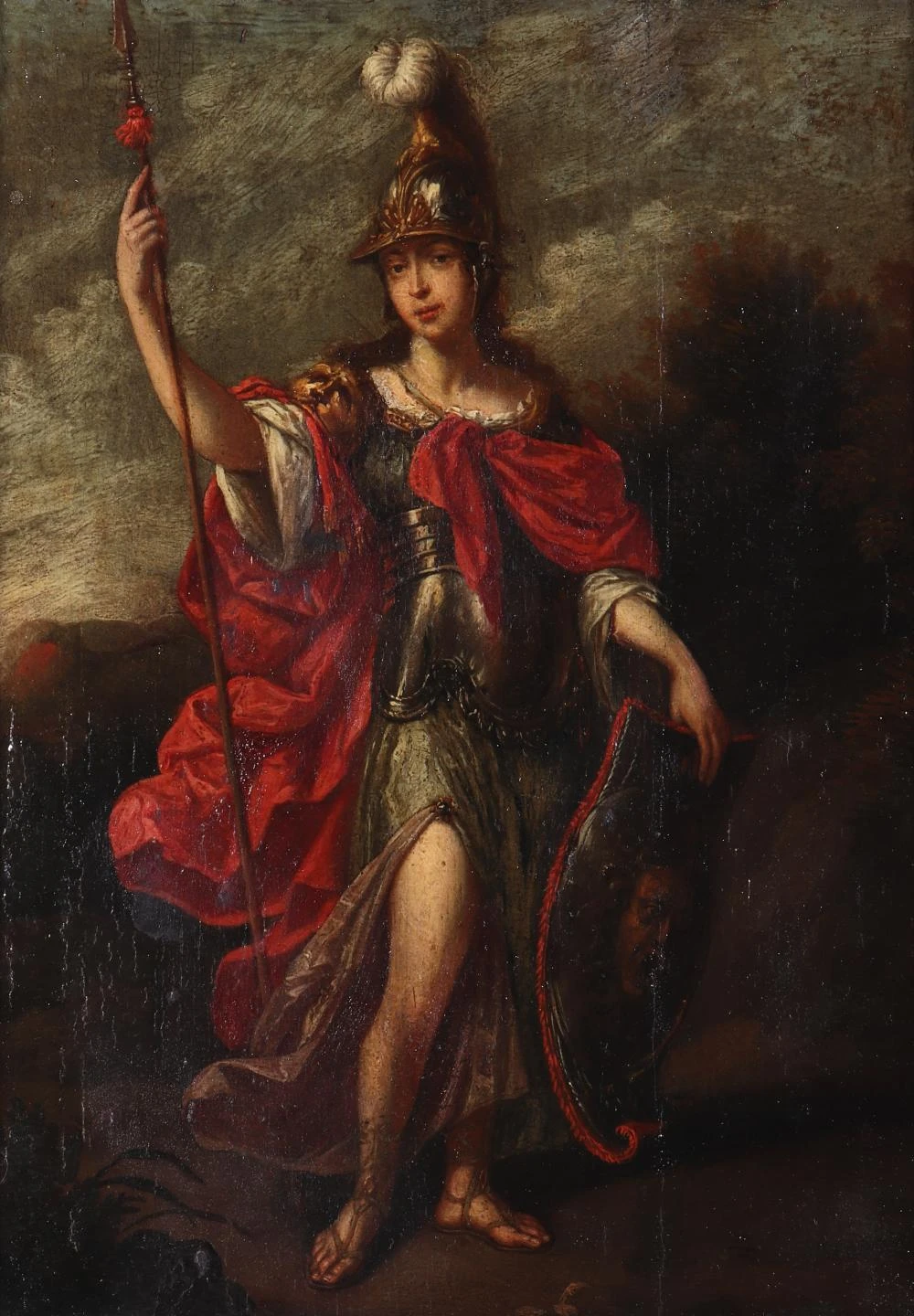
Source: Invaluable
Titles
Protector of Rome
Goddess of War
The Dueler
Lady of Strife
Abilities
Bellona’s abilities, deeply revered by Roman soldiers, are as dynamic as the tumultuous theaters of conflict over which she presides. One of her most notable powers lies in her capacity to infuse courage into soldiers’ hearts (“Bellona (Goddess)”), bestowing upon them an unwavering resolve and a surge of strength in the heat of battle. This transforms them into formidable warriors who stand undaunted against their adversaries (“Bellona – Roman Goddess of War”). Beyond fortifying individual combatants, the goddess also yields power in the strategic realm. Guiding the minds of military strategists and tacticians, she endows them with the wisdom and clarity necessary to devise effective battle plans (“Bellona | Encyclopedia Mythica”). This divine counsel often proves instrumental in determining the course of a conflict, ensuring that Rome’s legions are poised for victory (“Bellona: Roman Goddess of War History & Beliefs | Who Was Bellona?”).
Moreover, Bellona possesses the unique ability to kindle a warlike fervor among her followers. When invoked, she instills an unquenchable thirst for glory and triumph, igniting the spirits of warriors and driving them to confront adversity with unmatched determination (“Bellona: Roman Goddess of War History & Beliefs | Who Was Bellona?”). This aspect of her influence is pivotal in rallying Roman forces and ensuring their unwavering commitment to the cause of victory on the battlefield. Bellona is, in essence, a living embodiment of the martial spirit, providing the physical and psychological strength necessary for triumph in the face of conflict.
Characteristics
Through various artistic forms and sculptures, Bellona is consistently depicted as a stern and formidable woman, unwavering in her countenance (“Bellona: Roman Goddess of War History & Beliefs | Who Was Bellona?”). Often donning resplendent armor and wielding powerful weapons, she presents an imposing figure prepared for the rigors of combat (“Bellona (Goddess)”). Her determined expression, captured in these artful depictions, underscores her steadfast resolve in battle. Bellona’s steely gaze mirrors the unrelenting mindset of a warrior who confronts the chaos of warfare with courage and tenacity, emphasizing her role as the patroness of bravery. Her physical representation encapsulates the essence of war – the resolute warrior who stands firm in adversity. Her formidable appearance embodies the ideals of courage, strength, and unwavering determination that define the Roman approach to conflict (“Bellona – Roman Goddess of War”).
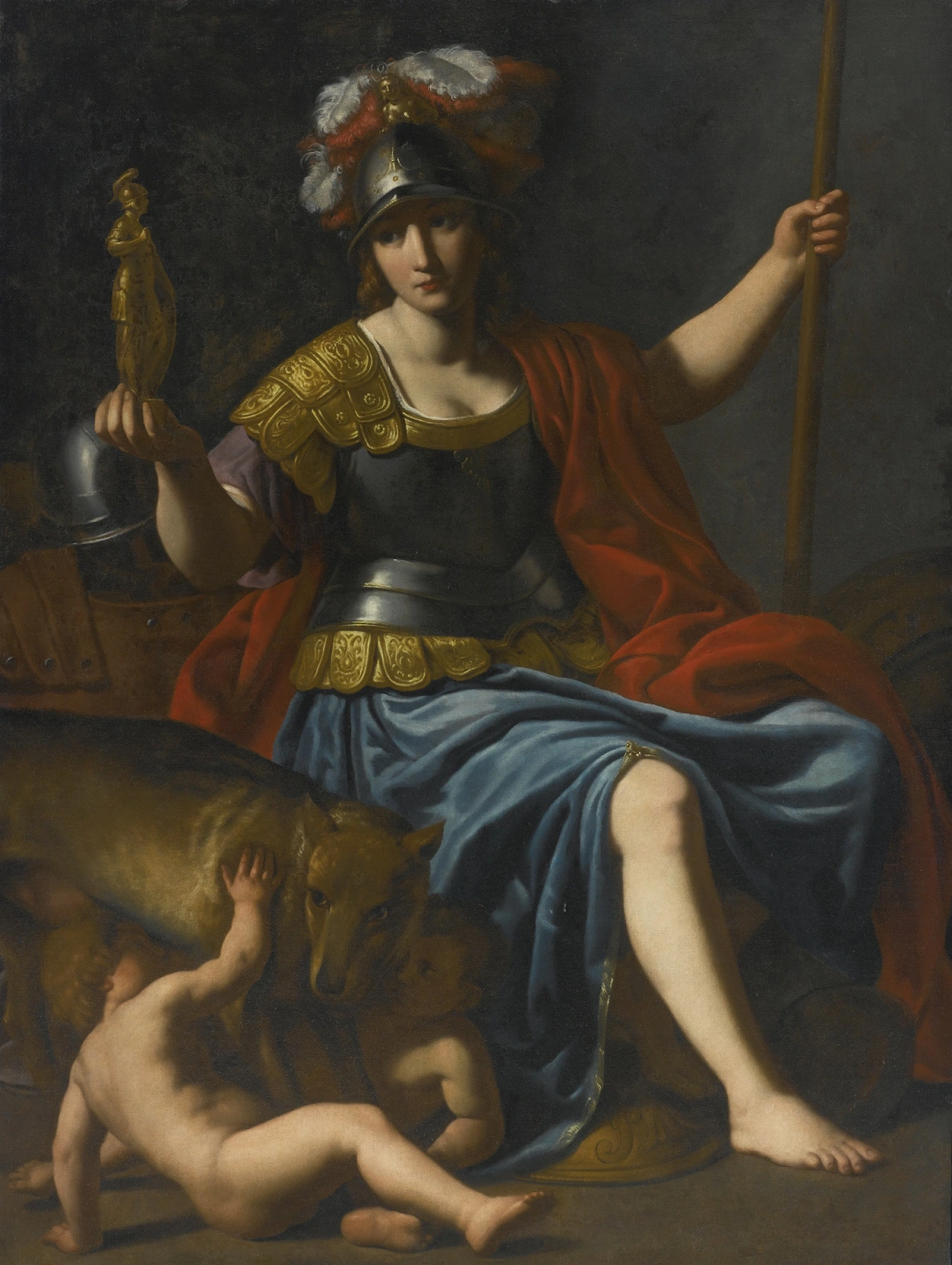
Source: Wikimedia Commons
Traits
The character of Bellona is defined by her unwavering fearlessness in the face of chaos and brutality (“Bellona – Roman Goddess of War”). Serving as a steadfast ally to those who invoke her, she inspires Roman soldiers to confront even the direst circumstances on the battlefield. In addition to her fearlessness, Bellona embodies determination and an indomitable spirit, reflecting the unwavering resolve of warriors who strive for victory even under the most challenging circumstances (“Bellona | Encyclopedia Mythica”). Through her unyielding commitment to pursuing triumph regardless of the odds, Bellona is a symbol of courage and perseverance.
Symbols
The various symbols that are attributed to Bellona, the Roman goddess of war, carry significant significance and are considered iconic. Among these symbols are her sword and shield, which she is often depicted holding, emphasizing her dual role as both a fierce warrior and a protector deity (“Bellona – Roman Goddess of War”). In the midst of battle, these weapons were employed to shield her devotees from harm. Additionally, Bellona is frequently portrayed riding a chariot, which serves as an emblem of her role in guiding and leading the forces of war (“Bellona | Encyclopedia Mythica”). The torch, another important symbol of Bellona, represents her ability to incite conflict and discord, while her attire, often portrayed as bloodstained, serves as a somber reminder of the brutal realities of war (“Bellona (Goddess)”) and the sacrifices made to pursue victory. Collectively, these symbols convey the essence of Bellona’s multifaceted nature as a fierce warrior and a guardian deity, her swiftness in the heat of battle, and her intimate connection with the savagery of war.
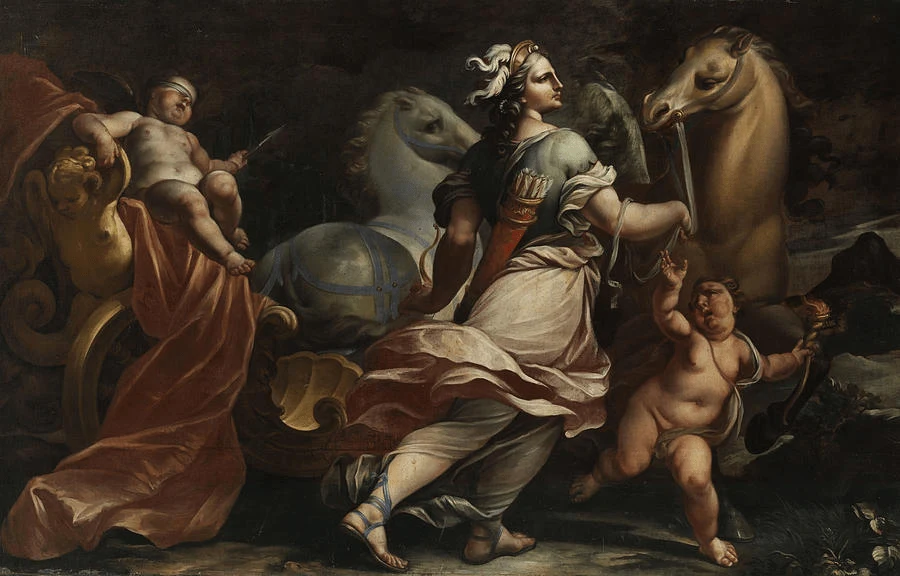
Source: Fine Art America
Festivals and Rituals
The Festival of Bellona was a significant and annual celebration held on June 3rd, serving as a resounding testament to the veneration and influence of the Roman goddess of war (“Bellona | Encyclopedia Mythica”). This grand occasion was a vibrant manifestation of Bellona’s profound impact on Roman military culture and the fervent devotion she inspired among soldiers and commanders alike. During the festival, Rome came alive with martial parades and pageantry, as soldiers bedecked in armor marched proudly through the streets, paying homage to the goddess who guided their military endeavors (“Bellona – Roman Goddess of War”).
Gladiatorial contests were a prominent feature of the festivities, where combatants engaged in fierce battles, perhaps mirroring the very conflicts Bellona oversaw. The atmosphere crackled with anticipation as the Roman legions sought her divine blessings for victory in their impending battles. Elaborate sacrifices were made in Bellona’s honor, an integral part of the ritualistic proceedings. These offerings were symbolic gestures of gratitude and supplication, acknowledging the goddess’s role as the protector of Rome and its warriors (“Bellona: Roman Goddess of War History & Beliefs | Who Was Bellona?”). The Festival of Bellona was a vibrant celebration of martial valor and the enduring partnership between the Roman military and their fierce, unwavering patron deity (“Bellona (Goddess)”).
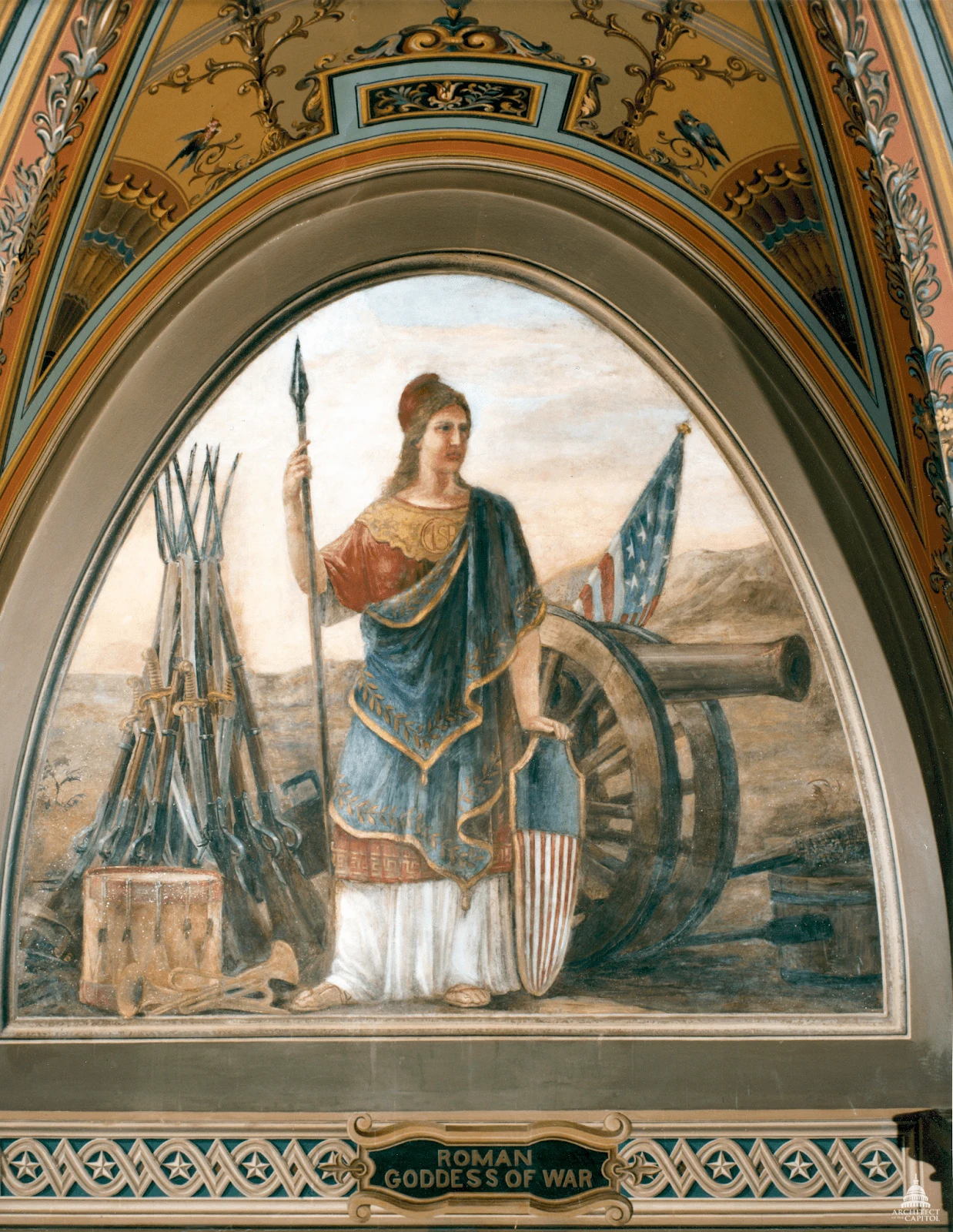
Source: Wikimedia Commons
Legends associated with Bellona
Bellona, the formidable Roman goddess of war, maintains a unique and enduring place within the pantheon of Roman deities. Her association with the relentless forces of armed conflict is well-established, and the following section delves into rich insights into her origins and multifaceted character, further deepening our understanding of this powerful deity.
Origin story
Bellona, the Roman goddess of war, has an origin story that is shrouded in relative obscurity when compared to more extensively chronicled deities. Nonetheless, her significance within Roman culture as a patroness of war is unmistakable. Variations regarding her parentage add layers of complexity to her origin. In some accounts, Bellona is described as the daughter of Jupiter and Juno, elevating her status to divine lineage and aligning her with the highest gods of the Roman pantheon (“Bellona (Goddess)”). Alternatively, she is portrayed as a sister to Mars, the god of war, further emphasizing her role as a significant martial deity (“Bellona: Roman Goddess of War History & Beliefs | Who Was Bellona?”).
Despite the variations in her parentage, what remains constant is Bellona’s core identity as the goddess of war. This enduring aspect of her character underscores her integral place in Roman culture and religion as the embodiment of the relentless forces and unyielding determination that define armed conflict. Therefore, it is clear that Bellona is a powerful guardian and inspirer of Roman warriors, a role that has remained steadfast throughout the centuries.
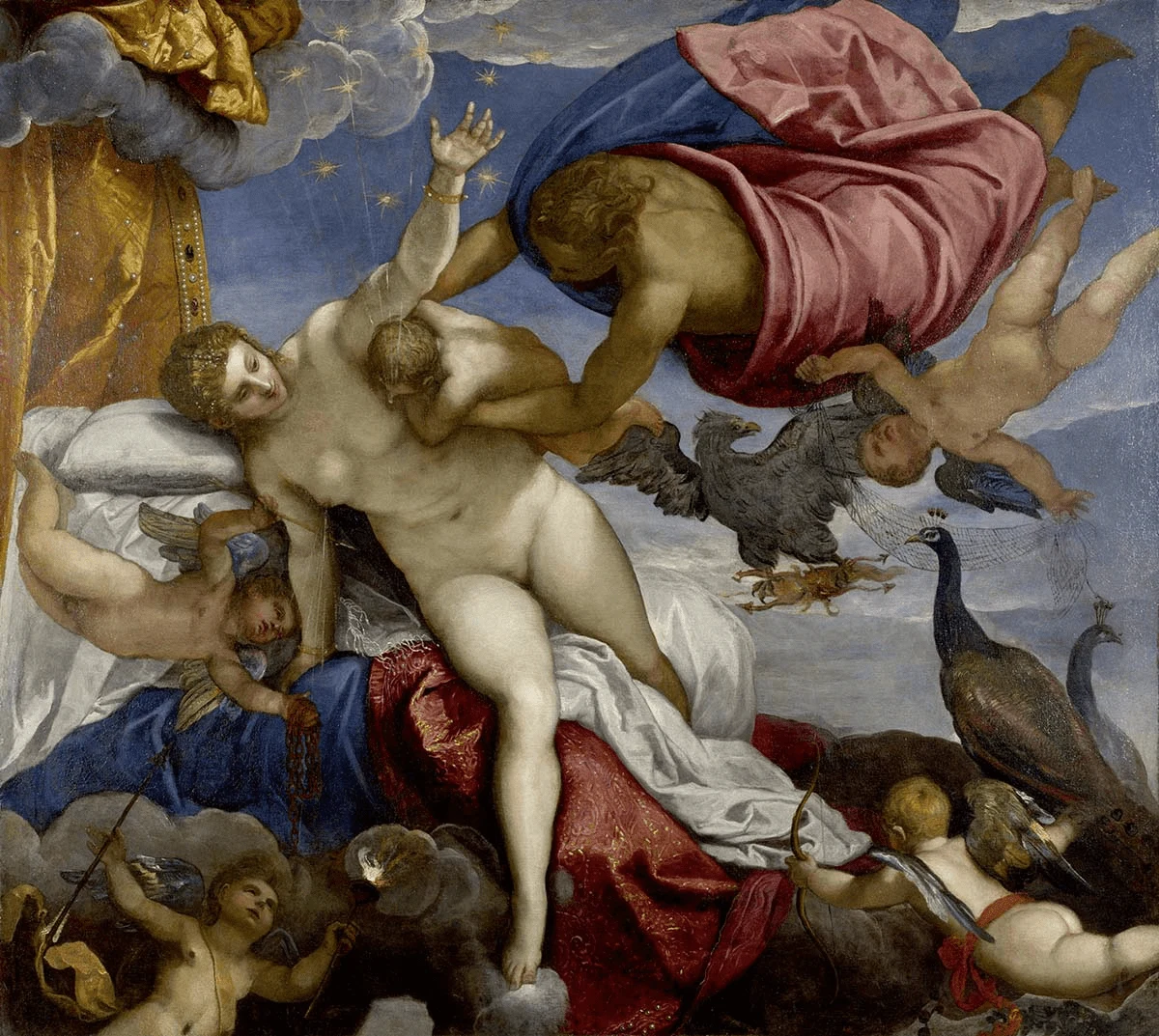
Source: Wikipedia
The Battle of Lake Regillus
The account of Bellona’s involvement in the Battle of Lake Regillus delves into the core of Roman military history, recounting a pivotal moment that solidified her reputation as a powerful guardian deity and an inspirational figure for Roman warriors. This legendary conflict, which occurred in the late 5th century BCE, is believed to have marked a turning point in the ongoing struggle between Rome and the Latins.
According to the myth, as the Roman forces faced their formidable Latin adversaries on the battlefield, Bellona rode at the forefront of the Roman army (“Bellona – Roman Goddess of War”). Her presence was not merely symbolic; it was perceived as a tangible source of divine inspiration. Fueled by her unwavering support and protective aura, Roman soldiers exhibited unmatched courage and determination when faced with adversity (“Bellona | Encyclopedia Mythica”).
The influence of Bellona on the outcome of the battle was profound. Her divine guidance led the Romans to a resounding victory over the Latins, securing Rome’s position as a dominant power in the region. This legend vividly illustrates Bellona’s role as a protective and empowering deity for Roman warriors, reinforcing her reputation as a guardian of Rome during times of conflict. Despite the mythical nature of this tale, it remains a testament to the deep-seated belief in the power of the divine to inspire and protect those in battle.
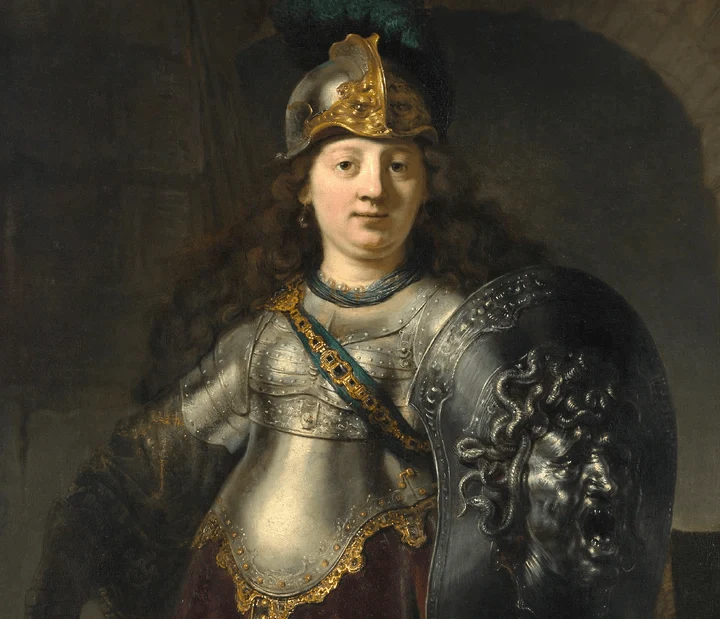
Source: Gallery Thane
Bellona and Mars
The tale of Bellona is one steeped in legend, and her relationship with Mars, the Roman god of war, adds depth to her character and highlights the intricate dynamics that underlie the concept of war within Roman mythology. Bellona and Mars were perceived as counterparts in Roman mythology, embodying Rome’s martial spirit. However, their dynamic could not have been more complex and characterized by cooperation and rivalry (“Bellona: Roman Goddess of War History & Beliefs | Who Was Bellona?”).
Various accounts and interpretations of their relationship exist in Roman mythology, each adding complexity to their story. Some narratives depict Bellona as the sister or even the consort of Mars, forging a close and intimate bond between them (“Bellona (Goddess)”). In this context, they were seen as complementary forces, with Bellona representing warfare’s fierce, unyielding nature alongside Mars. However, contrasting accounts present Bellona as a distinct and equally potent deity in her own right, emphasizing her independence and unique role as the goddess of war, separate from Mars.
Such ambiguity in their relationship underscores the multifaceted nature of war itself—a complex interplay of cooperation and rivalry, much like the deities who personify it. The legend of Bellona’s relationship with Mars emphasizes the complex, multifaceted nature of the fierce spirit that defined Roman culture. As a powerful guardian of Rome, Bellona’s role remains undeniable, and her interactions with Mars stand as a testament to the intricate dynamics that underlie the concept of war within Roman mythology.
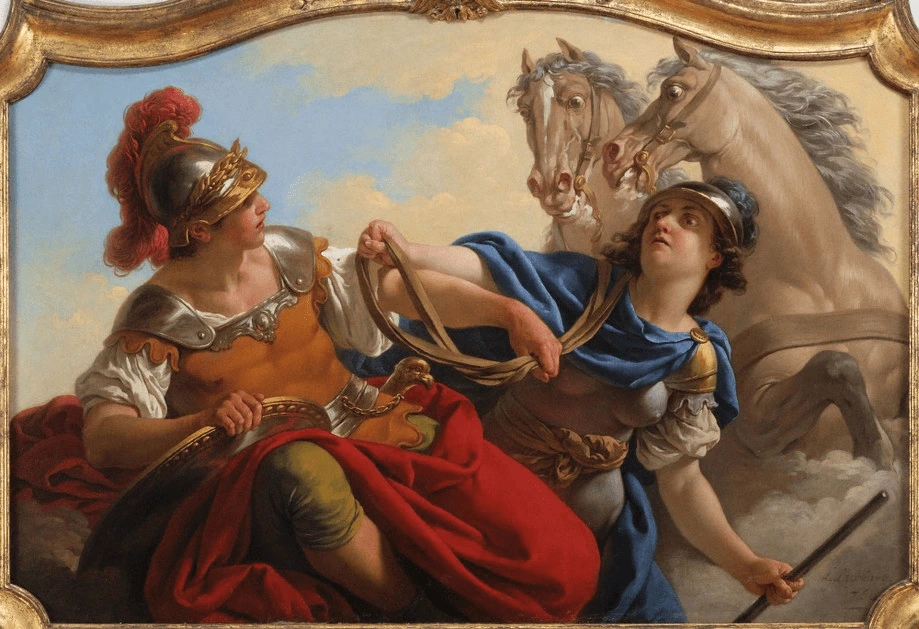
Source: Princeton University of Art
Influences of other religions/cultures on Bellona
Bellona, the Roman goddess of war, illustrates a fascinating amalgamation of Roman and Greek influences, exemplifying the syncretic nature of Roman religious practices. Her characterization and attributes bear striking similarities to those of the Greek goddess Enyo, who, much like Bellona, was closely associated with the chaos and devastation of war. This syncretism between Bellona and Enyo showcases the Roman penchant for merging their beliefs with those of the Greeks, creating a complex interplay of deities and rituals within their religious framework (“Bellona: Roman Goddess of War History & Beliefs | Who Was Bellona?”). It reflects the Roman practice of identifying their gods and goddesses with corresponding Greek counterparts, resulting in shared characteristics and functions.
In the case of Bellona and Enyo, their shared attributes as war deities underscore the universal nature of the martial spirit and the common cultural recognition of warfare’s destructive and tumultuous aspects (“Bellona (Goddess)”). This syncretic relationship highlights the interplay of different mythological traditions, enriching the pantheon of gods and goddesses and contributing to the multifaceted religious landscape of ancient Rome. It underscores how Roman religion evolved by blending indigenous beliefs and external influences, resulting in a complex and diverse belief system.
Modern appearances
The veneration of Bellona may have dwindled over the centuries, yet her influence remains prevalent in modern culture, taking on various forms in contemporary art and literature. Bellona, often depicted as a potent symbol of war and conflict, is a testament to the enduring fascination with ancient mythology. In contemporary art, Bellona’s image frequently evokes war’s powerful and unyielding forces, reminding us of the timeless nature of conflict and the goddess who personified it (“Bellona | Encyclopedia Mythica”).
Similarly, in literature, Bellona’s character and name are occasionally alluded to to convey the themes of destruction, war, and the indomitable spirit of warriors. As such, authors and poets use her symbolism to explore human conflict’s complex and timeless aspects. Ultimately, Bellona’s presence in modern culture is a conduit linking the ancient and contemporary worlds, embodying the enduring fascination with mythology and martial spirit. She remains a symbol that continues to resonate with artists and authors alike as they delve into war’s profound and enduring impact on human history and culture (“Bellona | Encyclopedia Mythica”).
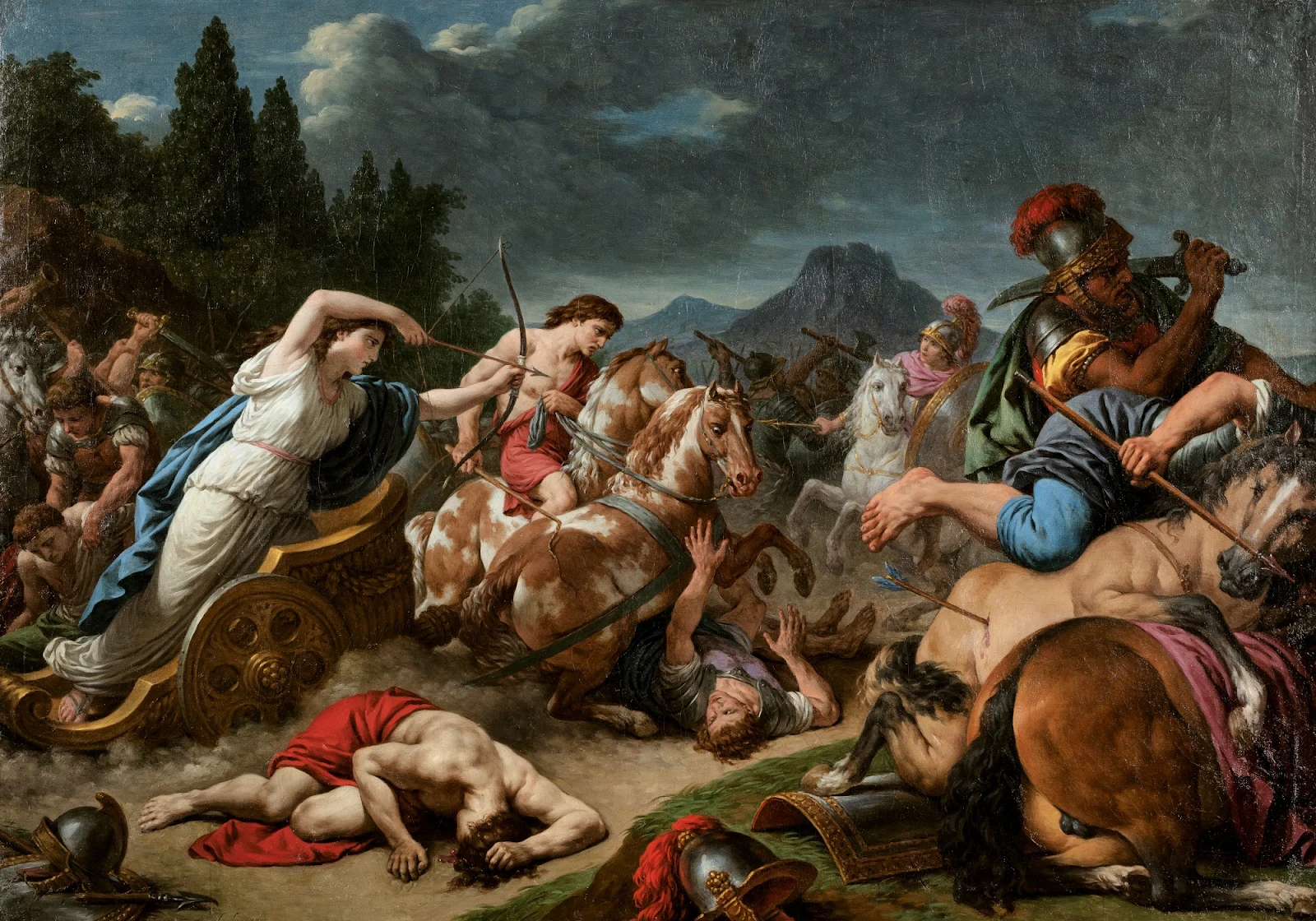
Source: Sothebys
Final thoughts
Bellona, the Roman goddess of war, is a multifaceted and highly influential figure in the realm of Roman mythology. Although not as numerous as some of the other deities, her legends and stories elucidate her vital role as a protector and motivator of Roman soldiers. Her origin tale, intricately interwoven with her associations with other deities such as Mars, highlights the complex nature of her character. Bellona’s significance extends beyond her ancient worship, as glimpses of her presence can still be observed in contemporary cultural expressions. As a symbol of the enduring spirit of warfare, Bellona remains an integral part of the Roman mythological heritage, embodying the relentless force and unwavering determination that war necessitates.
References
“Bellona (Goddess).” Wikipedia, 9 Mar. 2021, en.wikipedia.org/wiki/Bellona_(goddess).
“Bellona – Roman Goddess of War.” The Vindolanda Trust, www.vindolanda.com/blog/bellona-roman-goddess-of-war.
“Bellona | Encyclopedia Mythica.” Pantheon.org, pantheon.org/articles/b/bellona.html.
“Bellona: Roman Goddess of War History & Beliefs | Who Was Bellona?” Study.com, 2023, study.com/academy/lesson/bellona-roman-goddess-war-history-beliefs.html.
Did we miss something? Do you know another aspect of this legend? Don't hesitate to reach out!
Like this project
0
A client hired me to write several informative pieces on Roman Goddesses, and this blog post centers around the Goddess of War, Bellona.
Likes
0
Views
417
Tags
Ghostwriter
Blog Writer



